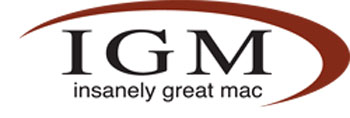Will HP Ditch its PC Business?
December 25th 2004
In the wake of IBM's historic decision to sell-off its PC business, some analysts are asking whether HP might consider adopting a similar strategy, Investor's Business Daily asks in an editorial.
Although the dust has barely settled on the HP-Compaq merger, which took place in March 2002, the question is whether HP's barely-profitable PC division should be sold-off or spun-off.
The merger hasn't made HP stock gain momentum, and the imaging division is still the bedrock of the company, while the PC and server/storage divisions are still essentially subsidized by the printer division.
IBD outlines three scenarios: spinning off the printer business; exiting the PC business; or separate consumer and corporate businesses.
Of the three, the first is deemed the least likely, as HP's printer division already operates as a more-or-less autonomous entity, producing over $22 billion in revenues and over $3 billion in profits.
Scenario 2 would allow HP to focus more intently upon the lucrative high-end server/storage markets, rather than the low-margin PC business. But HP argues that the PC business gives the company scale economies which allows it to confront Dell head-on. It's also seen as crucial to both HP's consumer and enterprise businesses.
The third option would see a separation of the business and consumer PC divisions. Higher-priced, higher-margin consumer PCs have worked, it's argued, for Apple and Sony. It would also leave the low-end, low-margin part of the market to Dell. Separating the divisions, the editorial argues, would mean the server side could compete more effectively with firms such as IBM.
A Merrill Lynch analyst argues that HP should drop the business PCs, which HP sees as strategically important, although these products could be supplied from the consumer side of the division.
Analysis: It reminds you of Apple in the early 1990s, when one business reorganization followed another. And it was also a time when Apple tried to be all things to all people. The Mac was the only real cash cow, but Apple had its imaging division (printers, scanners, cameras; monitors); Newton; an enormous proliferation of Macintosh models; software; OS; and spin-offs like Claris with FileMaker, Em@iler, ClarisWorks, Impact etc. Simplification under Jobs from 1998 made the product matrix much easier for consumers to understand.
Apple abandoned product segments entirely (like Newton and imaging) in order to focus on Macintosh. HP is similar in a sense: its crown jewel is its printer division. It would be dangerous to leave the PC ground to Dell, in which case the Texan company would mop up the lion's share of the business and consumer PC markets.
But what's truly remarkable about these three scenarios is a missing word: innovation. Sure, we're simply talking about x86 PCs, but the reason people still buy several million Macs per year is because they are innovative; have unique software/hardware interoperability and they perform the tasks both consumers and professionals want them to do. With HP's volume, it could innovate and compete with Dell. But it's not part of HP's corporate mentality; witness its mere purchase of the iPod from Apple in order to make itself more attractive in the consumer market.
